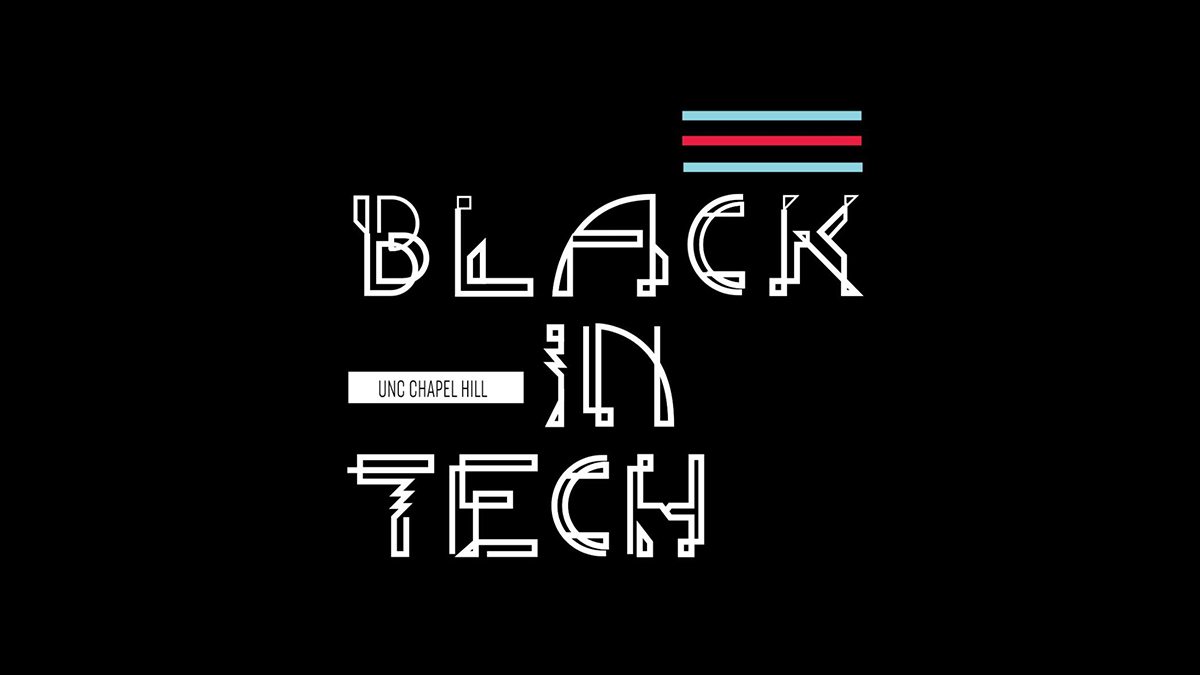Coding for community
The Tar Heels behind Carolina's Black in Technology student organization are working to increase the representation of Black students in computer science and create an inclusive ecosystem for students to thrive.

Mazin Shaaeldin always excelled at science in school but was unclear about what STEM field he’d pursue in college.
His older brother, an electrical engineer, suggested that he peek behind the curtain of his favorite video games and explore the code that created them. Shaaeldin then picked up a book on Python, a programming language, and taught himself to code from scratch.
That self-taught lesson sparked an interest that would eventually lead Shaaeldin to Carolina and to becoming the president of the University’s chapter of Black in Technology, a student organization dedicated to developing programs and professional growth events for students underrepresented in the technology and computer science fields and creating an inclusive ecosystem for students to thrive.
“What I really like about computer science is the flexibility it offers and the real-life impact we can have on the world through our work,” said Shaaeldin, a junior studying computer science. “What we do here has an impact on our field and those to come.”
The group is working to make that impact by connecting members with influential technology companies and hosting events in conjunction with other student groups like Women in Computer Science, Queer Hack and the National Society of Black Engineers.
“We bring in speakers from companies like Google, Cisco and Capital One who give advice on career paths, resume building, internships, interview practice and technical instruction,” said William Taylor, a Carolina junior and Black in Technology’s outreach coordinator. “These sessions provide opportunities for our members to meet minorities in STEM they can look up to and get practical advice for breaking into the field. Our alumni have gone on to work at top-tier companies like Microsoft or Facebook.”
While more underrepresented students are joining the computer science field, Taylor says the community is still developing at Carolina.
“Companies like Apple and Google are coming to the Triangle, and that brings funding and opportunities closer to Carolina and the members of Black in Technology,” said Taylor, who is a political science and computer science double major and data science minor. “More internship and employment opportunities in STEM in our area will also help us recruit more minority students interested in computer science to Carolina.”

Black in Technology members meet in Sitterson Hall. The group’s leadership team is pictured from left to right on the first row: Paul Smith (secretary), Mazin Shaaeldin (president), William Taylor (outreach coordinator), Ayana Monroe (vice president) and Amanda Harris (senior advisor). Nautica Harvin (treasurer) is on the far right in the third row and Noe Brown (social media director) is not pictured.
Shaaeldin said visibility and representation are key for diversifying the field and ensuring that everyone feels welcome to explore computer science. In addition to alumni and professional development events, Black in Technology has partnered with the Black Student Movement to make the computer science field more visible for Black students interested in STEM.
“I took several computer science and STEM courses in high school, and to be honest, there weren’t many people who looked like me enrolled or teaching. It made me question if this field was for me, and I don’t want anyone else to have that kind of negative experience,” said Shaaeldin.
He wanted to help change that for students like first-year student Jordan Harrison who joined Black in Technology in the fall. Through Black in Technology, he found his campus community.
“I’m the first person in my family to attend a predominantly white institution, so it was important to them that I find a group of people who would support me here,” said Harrison. “I met a member of Black in Technology, and he invited me to my first meeting. Out of all the groups I tried that first semester, the Black in Technology community has stuck with me.”
Harrison also credited the mentorship he’s received from leadership members like Shaaeldin and Taylor, who have shared advice about course tracks, studying for computer science exams and internship opportunities they’ve learned about.
During the pandemic, the world became even more dependent upon computer science to create chances for connection, and Black in Technology was no exception. This fall marked the first time some group members met in person, and they’re hoping this spring will mark a return to their in-person community-outreach symposium, AfroPix 2022, on April 9.
AfroPix is an inclusive event for people of color from Carolina and surrounding colleges to attend workshops, network with companies and peers and ask recent alumni questions. The one-day event is a culmination of the group’s efforts year-round.
“This event was created to celebrate people of color in technology and banish any sense of ‘imposter syndrome’ they may feel,” said Shaaeldin. “We hope to also inspire future generations of people of color interested in tech to pursue their dreams like we are.”




